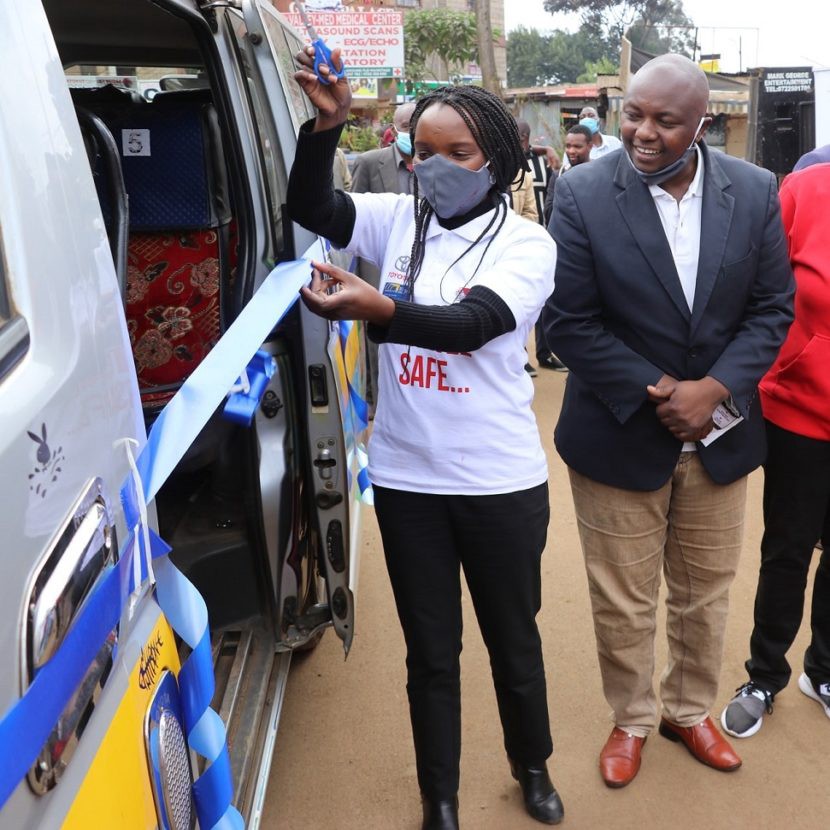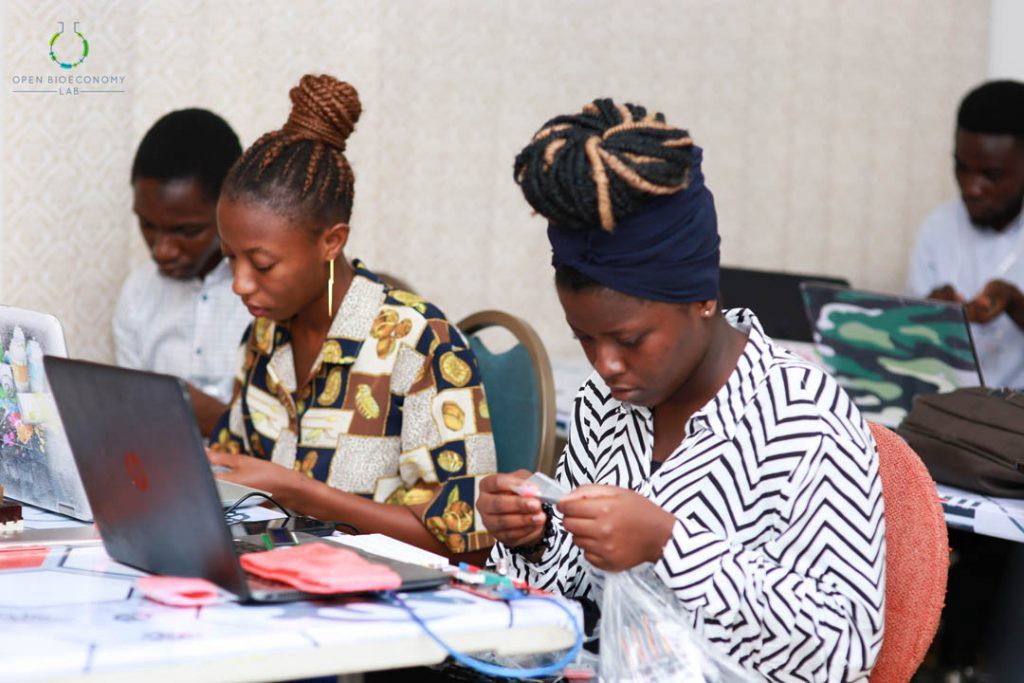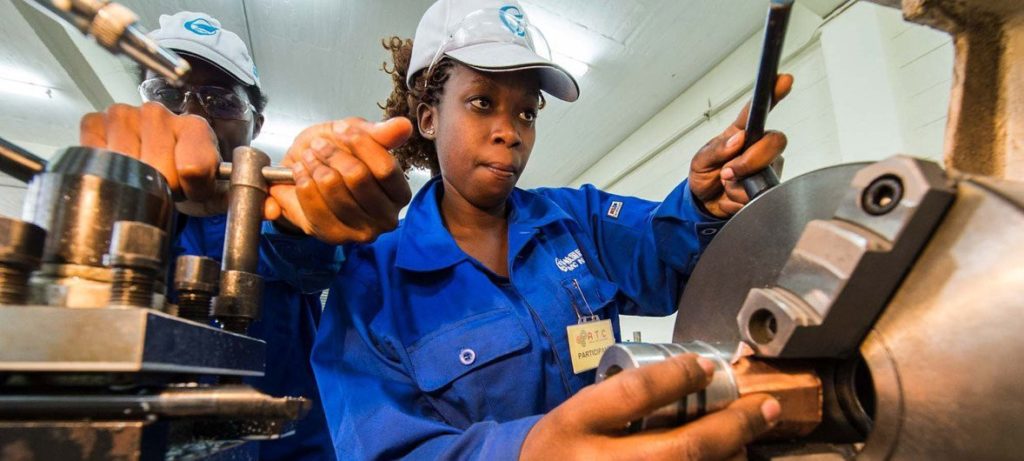Leapfrogging into the 4th Industrial Revolution
Award-winning tech entrepreneur Mary Mwangi on the power of young tech talent driving digital transformation.

Mary Mwangi is the Founder and CEO of Data Integrated, an innovative Kenyan ICT company that offers financial solutions to Africa’s SMEs. She has blazed a trail in Kenya’s public transport system, boldly making use of the latest advancements in technology to solve long-standing challenges in the industry. We caught up with Mary at the 2022 Doha Forum, where she shared her passion for technology and the value of hiring a young team of tech talent to drive her business forward.
What inspired you to become an entrepreneur?
I like people and I’m a bit of an independent person, and I really like helping people build solutions. I also like to feel that I believe in what I’m doing. Coming back to Kenya after being in the US for so many years, I spent some time thinking about what I could do and where I could add value. I looked at the problems on the ground and I realised that there were a lot of companies moving from legacy systems to enterprise systems. And because I had a lot of experience in helping companies with that transformation process, it inspired me to start Data Integrated.
I realised that, in Africa, companies were going to be in a lot of trouble if they didn’t adopt digitisation. Mobile money was starting to grow, and I thought perhaps we could use mobile money to help digitise SMEs on the continent — and that’s where I thought I could contribute most.
The fourth industrial revolution will help Africa leapfrog a lot of the old legacy systems that we’ve had.
My mother has been a business woman since as far as I can remember, and she also has served as a source of inspiration. The friends that she was working and socialising with were also trying to run their own businesses. At that time, it wasn’t very common to see women leading in certain areas of business in Kenya. Women were struggling in their little businesses, but now a lot of these businesses are coming up.
As these businesses grow, it becomes very difficult for them to scale. My goal has always been to help them digitise, especially so that they don’t feel they have to be tied to the counter collecting money, going there first thing in the morning and trying to close the business late at night. I felt that for women to be able to run their families and their businesses efficiently, it would be good if we had a digital system.
What made you pivot into public transport?
We were trying to assist SMEs — thinking about brick-and-mortar types of shops and places where we could bring digital systems to help the small business — but along the way we got into public transport. When we finished our first solution, we thought, “Let’s pilot it with public transport, because they don’t have too much complexity in terms of what they provide as a service — it’s just ticketing. And then we can get back to our other business as usual.” But since we got into public transport in around 2014, we’ve never turned back.

We realised that the challenges in public transport were humongous, but we were able to put in controls and systems with a digital platform. We found a niche where we could actually build around it. We started with one solution, and right now I think we have about seven solutions around public transport. So we are really more of a public transport solution provider!
What excites you about innovations in tech and the Fourth Industrial Revolution?
The fourth industrial revolution will help Africa leapfrog a lot of the old legacy systems that we’ve had. We will be able to capture data and use it in a more transformative way for businesses on the ground and help to solve a lot of the challenges that the continent faces. For me, it’s exciting because it makes things affordable. It makes technology accessible to people who would not have had it previously. I’m very excited about that.
So much of the technology that we’re using in our business evolved without us even realising where we were going — we were just trying to solve problems as we found them. And because we were trying to do this with public transport, and buses are on the move, we had to put devices on them — we needed them to respond to us — so we got into IoT (Internet of Things) almost by accident. And then because we had to train the devices, we got into artificial intelligence. With this, we are able to bring certain solutions to the industry, which we would never be able to do without technology.
You’ve been an innovator in hiring young tech talent for your team. Why did you feel this was important?
We started out with about two tech people, and now on the tech team, I believe we’re close to 30 people, and many of them are young interns or recent graduates just starting out in their careers.
Being a start-up, we didn’t have a chest of funds at our disposal, so what we had to do was train the team that we’d need. We started out with about two tech people, and now on the tech team, I believe we’re close to 30 people, and many of them are young interns or recent graduates just starting out in their careers.
We wanted to try building our own hardware from the start, so our hardware team has always been a part of Data Integrated. On the team, we have a lot of people coming from college. When we were trying to find people who could do hardware before, we couldn’t find any — I don’t think universities were training people in hardware. But we are very excited to see programmes coming up that train young people in this, since it’s not a very common thing on the continent.

We also do a lot of software development, and the interns we bring in are taught through the process, and sometimes we’ll absorb them into full employment. After they’ve been with us a few years, some will stay, others will move on — mostly to do their Masters or join big organisations.
It’s very exciting to see how these teams and young people are growing. When they come in, at the beginning, they’re a bit shy, they don’t want to talk — they don’t have much confidence. But later on they are leading and building things. The impact is amazing.
How important do you think it is for young women to equip themselves with tech skills?
It’s critical. We need the skills, if we’re going to move to the technology economies that we are seeing. It’s crucial that not only do they train in school, but have applicable experience where they are able to utilise what they’ve learned and learn from each other. They’re very smart. They’re very curious. They’re very hardworking. They want to learn. And I think it’s important that we grow and nurture this.
It is so important for young women to empower themselves with tech skills right now.
I read that in Nigeria it has always been about oil, oil, oil. This year for the first time, tech overtook oil in GDP earnings for the country! The potential of it is humongous, and it is so important for young women to empower themselves with tech skills right now.
On our team, we’ve hired both young women and young men. When the young women come in they are just as green as the men. Both are learning and practising their skills. What I’ve noticed though is that with time, the men remain more introverted, but for the women, as they get experience, you can see them blooming and getting out there. They’re more willing to socialise, learn more from each other and hold each other’s hands through it all. So I do think that to grow a lot of the tech skills in Africa, women are just as important, if not more.

In our hardware team, there are more women than men. They wear overalls and they’ll go and install devices in vehicles, and do all the mechanics. The only issue is that of safety because of the nature of public transport, and them having to go out late at night; I’m a bit protective of them.
What advice or words of wisdom would you give to talented young women professionals seeking to achieve success in their careers?
You can do it. There’ll be days when you’ll feel like you’ve hit rock bottom, but you have to get up. Know that every day there’ll be challenges and there’ll also be successes. Don’t let the challenges discourage you, and look for your strength. Look for something that gives you strength, turn to that, but keep going.
Find out more about how The ROOM is connecting companies with the in-demand skills of the future through its pool of world-class tech talent.
